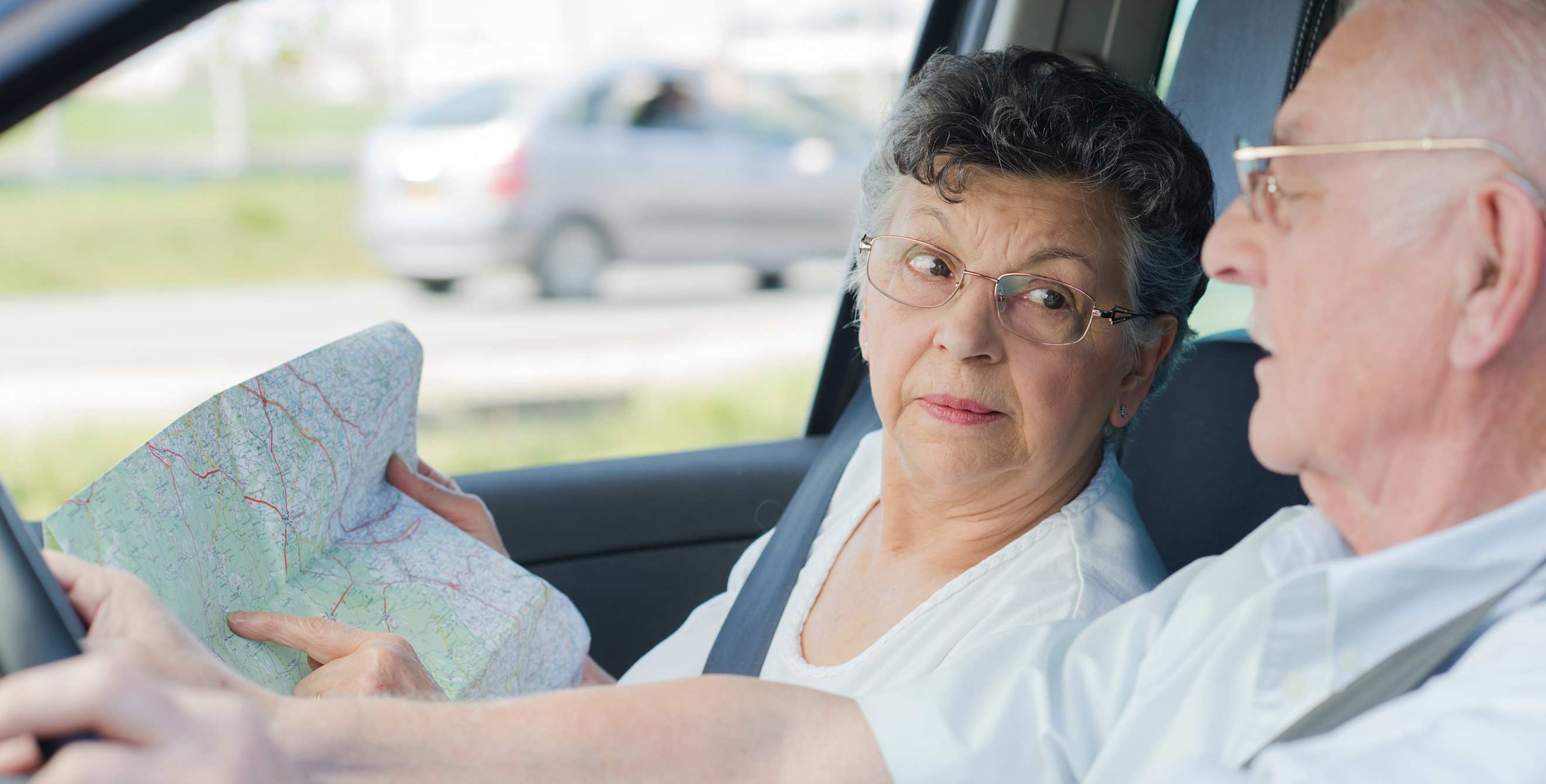
What Seniors and Their Families Need to Know About Driving and Dementia
If you frequently notice these warning signs, it may be time to stop driving.

As you get older, your brain needs more time to process information, making it more difficult to ignore distractions. The good news is that mature judgment, years of driving experience, and good driving habits often can help senior drivers compensate for some diminished cognitive abilities.
Cognition is the ability to remember information like locations or destinations and recognize and respond to things such as traffic signs and pavement markings. When driving, it involves being able to focus and make sound decisions in a hurry to avoid a crash. As cognition declines or trouble remembering becomes more common, it may no longer be safe to drive.
People with cognitive impairment and memory loss may be diagnosed with dementia. Dementia is not a specific disease, but rather a word used to describe symptoms caused by disorders that affect the brain. Alzheimer’s is the most common form.
If you have dementia, you will eventually become unable to drive due to challenges with reaction time and decision making. However, a diagnosis of dementia doesn’t necessarily mean senior drivers should stop driving right away. If you have been diagnosed with early-stage dementia, it’s very important that you discuss driving with your doctor and your family to determine when you need to stop and how you will get around without getting behind the wheel.
Warning signs that dementia is affecting your driving and that you need to stop include:
- Forgetting how to locate familiar places;
- Failing to observe traffic signs and signals;
- Becoming angry or confused while driving;
- Often hitting curbs while driving;
- Confusing the brake and gas pedals;
- And forgetting your destination during a trip.
As an older driver, if you have experienced any of these warning signs, consult your doctor. You might be referred to an occupational therapy driver rehabilitation specialist for an evaluation to help determine your fitness to drive.